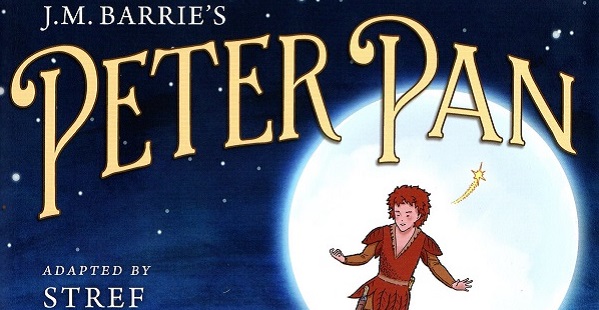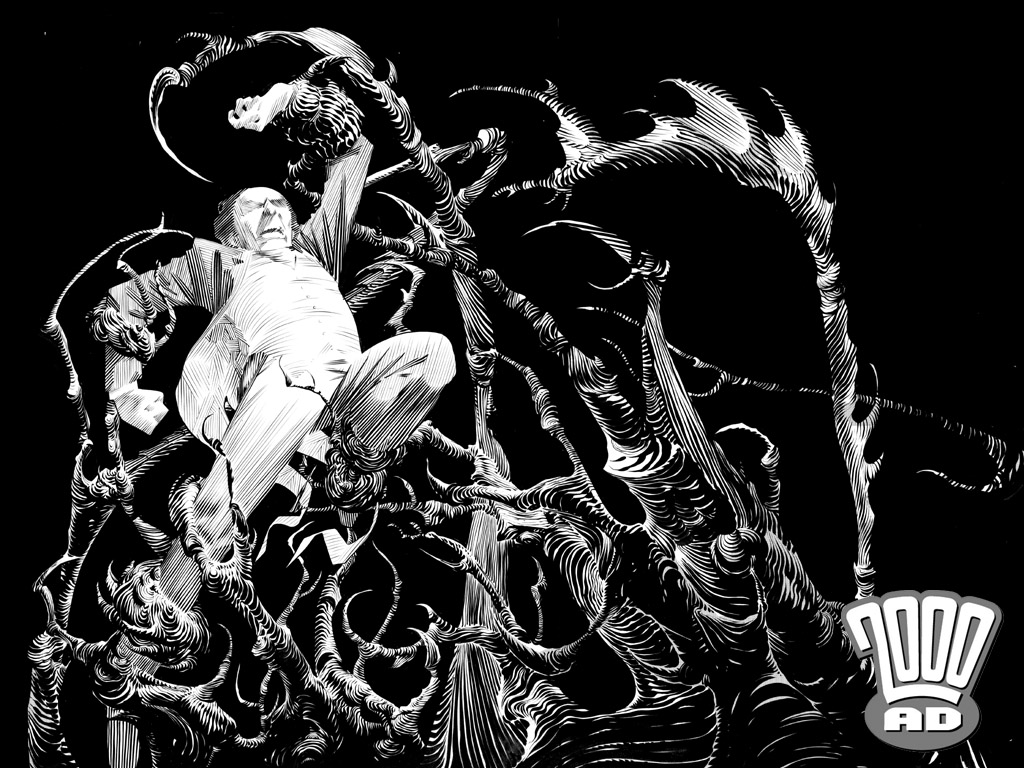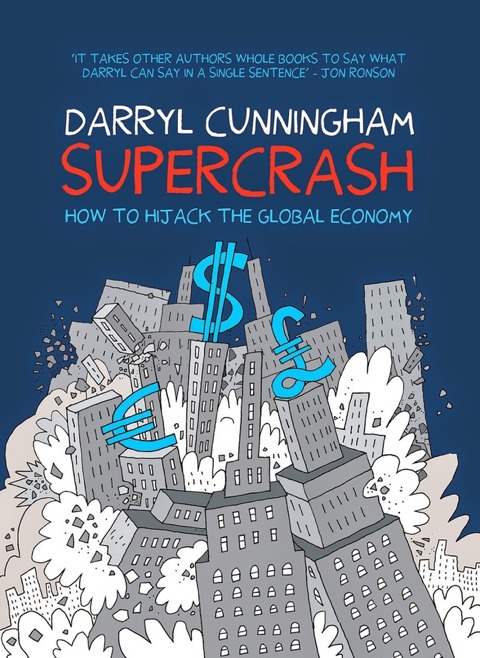Andy Luke reveals the making of one of the strips featured in the Eisner Award-nominated anthology To End All Wars – “Bottomley – Brand of Britain”…
On Friday night, the San Diego Comic Con will announce the Eisner Awards, where the anthology collection To End All Wars, published by Soaring Penguin Press has been nominated, twice.
I’ve felt quite all right about singing my part in the commendation. Although barely ten pages (under 1000 words most likely), I started work on “Bottomley – Brand of Britain” in 2009, when political expenses and public austerity were daily headline news. Even on that trail, I didn’t realise how accurate a reflection of the time Bottomley’s tale was.
Here’s how editor Jonathan Clode pitches it:
Horatio Bottomley, patriot and publisher of John Bull, the newspaper of the people. But behind his rousing public speeches and staunch support of the troops hides a conspiracy that would reveal one of the greatest swindles of World War One…

Horatio Bottomley – financier, journalist, editor, newspaper proprietor, swindler, and Member of Parliament – in 1918.
Born in 1860, Horatio Bottomley – ‘The Chief’ – was a financier, journalist, editor, newspaper proprietor, swindler, and Member of Parliament. He made a stack of cash from hostile takeovers, before moving into the newspaper business.
He’s all but forgotten now, but as Pat Mills, the co-creator of “Charley’s War” says, he was a sort of Robert Maxwell of his day. Bottomley launched the Financial Times, and the first UK newspaper to be called The Sun. He’d be remembered only through his lead paper, John Bull. You know the icon of the fat hat with the bulldog? That was Horatio Bottomley, art commissioned by Bottomley. That dude was real, ugly.
The re-telling of his life started as a sub-plot for a graphic novel, but the intensive part-time study called for it to be its own piece. Three years later, I was still at it. I’d three drafts together when editors Jonathan Clode and John Stuart Clark put out the call for submissions for To End All Wars, and my script went under another three drafts to tailor it to the collection.
Out of work and out of money, I took a three month Invest Northern Ireland course to receive a grant; a pittance really, but it would pay the illustrator something. Thankfully, both artist Ruairi Coleman and letterer John Robbins were on board already. John has been a long time friend, confidante and critic, and he’s probably the best comic book letterer in Ireland.
Ruairi, I didn’t know quite as well. He was young, always a sure sign of trouble, yet remarkably talented. From the get-go he was everything I hope for in a creative work partner. Ruairi took in the bundles of visual reference I sent, with eagerness, no complaint.

A 1916 edition of John Bull, whose constant theme is that the decent British people, especially the soldiers, are ready and willing to win the War, but are constantly let down by the feeble and incompetent government. More about the edition here
He took it on himself to go through a number of articles on Bottomley, and sat through the hour and a half televised 1972 docu-drama The Edwardians featuring Timothy West, with its agonising awful cut-aways.
Bottomley’s story is that of the Britain’s major recruiting agent during World War One, selling the war largely through gallons of racism. As editor, publisher and columnist of John Bull, as well as frequent pieces in The Times, the papers were packed with anti-German sentiment: Germ-huns, bayoneted babies.
“The constant theme is that the decent British people, especially the soldiers, are ready and willing to win the War, but are constantly let down by the feeble and incompetent government,” noted Geroge Simmers of a sample edition of John Bull, published in 1916 he came across, in an article for the Great War Fiction site. “Haig is sarcastically commended for finally getting round to ordering body shields for the troops, which John Bull advocated ‘months ago’. Bottomley has the answers, and also specialises in asking awkward questions.”
“…Bottomley clearly had an excellent rapport with his huge audience (Circulation was pushing two million by the time of the Armistice.) Equally clearly, he told them what they wanted to hear. In these pages you hear the voice of the lying demagogue, but you also hear the voice of the ordinary soldier insisting that he is doing his best, but resentful of those above him who are abusing
their privileges.Yes, this is propaganda, but it does not come from the Government. Bottomley has judged the mood of a large fraction of the people, and his magazine lets their prejudices, resentments and suspicions make themselves heard (while its editor and part-owner rakes in an enormous profit.)”
The same was true for four years of nationwide speaking tours for which Bottomley was handsomely paid. He brought theatre to sacrifice, including a two-part speech in which he staged a mock trial defending Britannia against the Kaiser, dressed as a judge.
It has been calculated he addressed twenty recruiting meetings and 340 “patriotic war lectures”. Although he had been highly critical of the government, at the meetings he always stated: “When the country is at war, it is the duty of every patriot to say: My country right or wrong; My government good or bad.” He also falsely claimed that he was “not going to take money for sending men out to their death, or profit from his country in its hour of need.”
Eventually, his greed got too much: in 1919, he launched a fraudulent “Victory Bonds” scheme which, when exposed, led to his conviction, imprisonment and expulsion from parliament.
Released in 1927, he attempted unsuccessfully to relaunch his business career, and eked a living by lecturing and appearances in music halls. His final years before his death in 1933 were spent in poverty.
For posterity, here’s a selection of pre-production images by myself and Ruairi Coleman for the strip.

Inks.That’s Bottomley’s mistress, Peggy Primrose, in Panel 4, putting her hat back on after it was knocked off in the squash.
Web Links
• This article was first published on my own web site and is re-published here with permission
• You can see more on Ruairi’s blog, and read of his experiences with ”H.B.’
Publishers boldly enquiring on other creative works of mine, around the Great War, might wish to contact me via drew.luke(at)gmail.com for a copy of Lord Kitchener’s Shell Crisis board game
Horatio Bottomley: Bibliography
Finally, here’s a select Bottomley bibliography. Because I love you.
Hyman, A. (1972) The Rise and Fall of Horatio Bottomley, Littlehampton Book Services Ltd
Symons, J. (1955) Horatio Bottomley, Cresset Press. Reprinted 2008 by House of Stratus.
Electronic
AndyMinion (Sept 28, 2010) Horatio Bottomley: A Lesson From History. Retreived at http://lancasteruaf.blogspot.com/2010/09/horatio-bottomley-lesson-from-history.html [Accessed: 8th July 2015]
Anon (June 5, 1933) GREAT BRITAIN: Death Of John Bull, Time. Retrieved at http://www.time.com/time/magazine/article/0,9171,745621-1,00.html [Accessed: 8thJuly 2015]
Anon (Date?) Horatio Bottomley – The Soldier’s Friend, in Crimes of the Times: Law and Order After the War. Archived from http://www.aftermathww1.com/horatio1.asp[Accessed: 23rd October 2010]
Cowling, M. (2005) The Importance of Bottomley (Ch. 2, p.45-60), in The Impact of Labour 1920-1924: The Beginning of Modern British Politics, Cambridge University. Retrieved at Google Books. [Accessed: 8th July 2015]
Lewis, Roy (Date?) Horatio Bottomley – Champagne & Kippers for breakfast. Archived from http://www.villagepublunches.org.uk/sussex-people-profiles/127-swindles.html[Accessed: 23rd October 2010]
Messinger, G. S. (1992) The Wrong Kind of Immorality: Horatio Bottomley (Ch. 13 pp.200-213), in British propaganda and the State in the First World War, Manchester University Press. Retrieved at Google Books. [Accessed: 8th July 2015]
Video
Mr. Bottomley at Yarmouth (1919) Film. UK: British Pathe Archives. Retrieved at http://www.britishpathe.com/video/mr-bottomley-at-yarmouth [Accessed: 8th July 2015]
The Edwardians, Ep. 7: Horatio Bottomley (2009) Film. Directed by Alan Clarke, UK: Acorn DVDs. Originally broadcast 28 Nov, 1972, BBC.
 Andy Luke is a writer who draws. He has made comics, notably: Bottomley: Brand of Britain (with Ruairi Coleman) for the double Eisner-nominated To End All Wars anthology; Absence: a comic about epilepsy, (with Stephen Downey), winner of an UnLtd Millennium Award; and the critically acclaimed Gran: a 24 hour comic.
Andy Luke is a writer who draws. He has made comics, notably: Bottomley: Brand of Britain (with Ruairi Coleman) for the double Eisner-nominated To End All Wars anthology; Absence: a comic about epilepsy, (with Stephen Downey), winner of an UnLtd Millennium Award; and the critically acclaimed Gran: a 24 hour comic.
He’s also written widely on the form as well as co-producing NVTV’s The Invisible Artist documentary (with Carl Boyle), on Belfast’s underground comix scene. Andy has also contributed short prose tales to the anthologies 12 and Tense Situations.
His novels include Axel America (2016) and Spide: The Lost Tribes (2018)
• To learn more visit @andrewluke or go to andy-luke.com. You can also find him on Facebook
Categories: British Comics - Graphic Novels, Creating Comics, Featured News, Features










 Behind The Scenes: Stref’s Adaptation Of Peter Pan
Behind The Scenes: Stref’s Adaptation Of Peter Pan  A Barbed Fist in a Velvet Glove: An Interview with writer Gordon Rennie
A Barbed Fist in a Velvet Glove: An Interview with writer Gordon Rennie  Darryl Cunningham: Taking on the Super Rich
Darryl Cunningham: Taking on the Super Rich